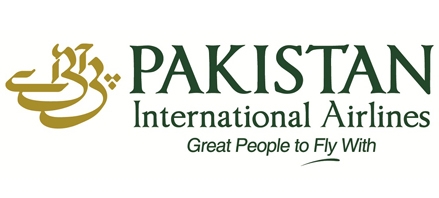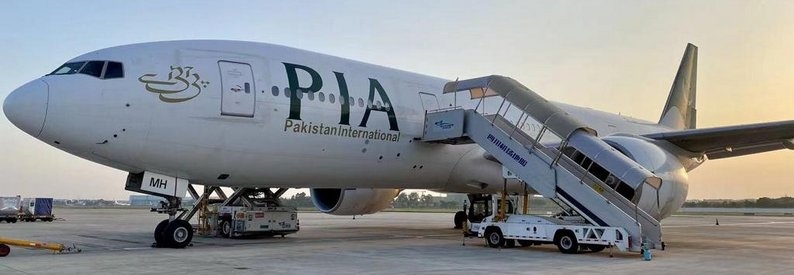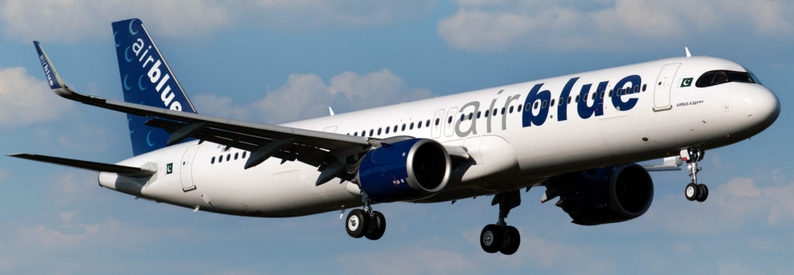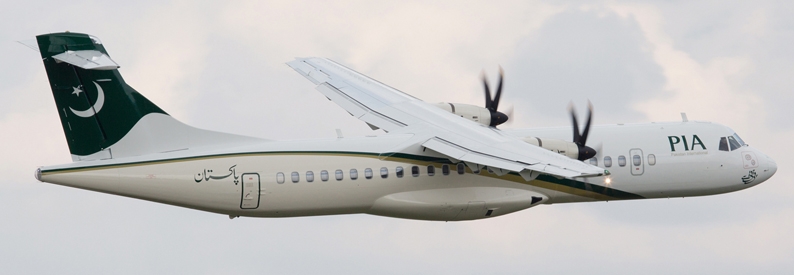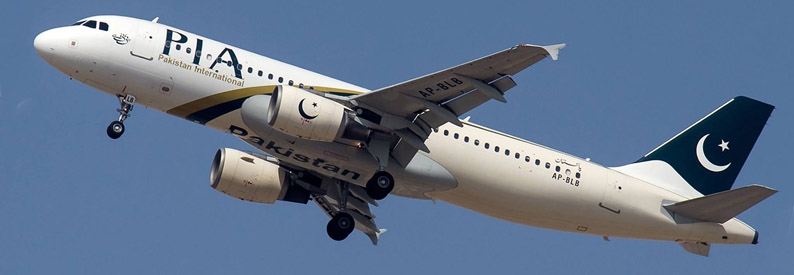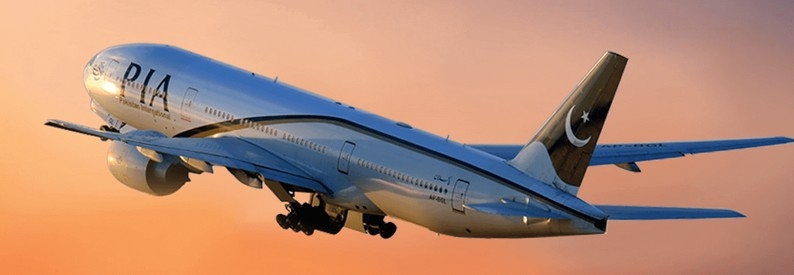PIA - Pakistan International Airlines (PK, Islamabad International) has refuted a media report of a PKR17 billion rupee (USD60.8 million) debt repayment default, calling it a misreporting of a balance sheet restructuring proposal that has been not be accepted by Pakistan's Ministry of Finance.
Pakistan's NetMag portal recently reported that PIA failed to make repayments to seven commercial banks earlier in December, including the National Bank of Pakistan (NBP), JS Bank Limited, Al Baraka Bank, Bank of Punjab, and Habib Bank Limited.
State-owned PIA owes its lenders approximately PKR263 billion (USD931 million). Typically, the government has provided last-minute financial bailouts to the airline. However, a more fiscally hardline approach by recent administrations has resulted in fewer bailouts, forcing the carrier to rely more on commercial banks. The government is attempting to partially-privatise the airline and wants to use the proceeds from that to settle PIA's debts.
"PIA is on the verge of being privatized and while the transaction is in full flow, it requires the balance sheet restructuring effort as well," a PIA spokesman told ch-aviation. "One such proposal was to merge the government guaranteed loan in public debt which was not okayed by the caretaker government in Pakistan. However that is not the only solution, rather one of the options. The events reported are not a matter of default rather a balance sheet restructuring proposal that has been not be accepted by Ministry of Finance."
The headline debt figure is owed to 12 banks, with the Bank of Punjab having the biggest exposure. In addition to the aforementioned institutions, other banks with PIA loans on their books include Askari Bank, Faysal Bank, Bank Islami Pakistan, Al Baraka Bank Pakistan, and Soneri Bank.
Pakistan's Finance Ministry, which is overseeing the partial privatisation of the airline, is reportedly prepared to allocate three-quarters of the monies raised towards settling PIA's debts. However, the government has yet to publicise its target capital-raising figure.
Separately, other outlets report that a consortium of six banks offered PKR15 billion (USD53.1 million) in fresh loans to PIA in exchange for sovereign guarantees, a letter of comfort, two aircraft as collateral, and a waiver from the central bank. Additionally, the consortium wanted to tie the new loan to a settlement plan for the existing PKR263 billion debt, revenues from certain routes, and requested that the laws of the United Kingdom and/or United Arab Emirates govern the new loans. Ahead of any partial privatisation, day-to-day funding of PIA remains a challenge and reliant on cooperation from Pakistan's financial institutions.
However, the Finance Ministry declined the offer, with a spokesperson telling the Express Tribune outlet that it was a nice deal for the consortium but not so good for PIA. The consortium included Habib Bank, National Bank of Pakistan, and Meezan Bank, who would each stump up PKR3 billion (USD10.6 million), and Faysal Bank, Bank of Punjab, and Askari Bank, who would each contribute PKR2 billion (USD708,000). Five of these six banks are already owed PKR220 billion (USD778.8 million) by PIA, or 83.7% of the airline's total debts to its lenders.
Reportedly, sovereign guarantees would have secured half the proposed loan amount, which was acceptable to the finance ministry. A Ministry of Finance issued letter of comfort and two aircraft would have secured the remainder of the amount (plus the interest). However, the ministry was not prepared to issue the letter of comfort, saying it ran contrary to the existing International Monetary Fund support program now underway in Pakistan and could lead the way to other entities demanding the same treatment.
The consortium also reportedly wanted the ministry to arrange a waiver from prudential regulations from the central bank. It also wanted exclusive access to revenues from PIA's flights to its UAE ports to pay the principal and interest on the new debt. It also wanted guarantees that these flights would not be interrupted by fuel shortages and the like. None of these supplementary conditions were acceptable to the ministry.
- Type
- Base
- Aircraft
- Destinations
- Routes
- Daily Flights
